How to Avoid Diamonds Scams And Tricks Jewelers Use
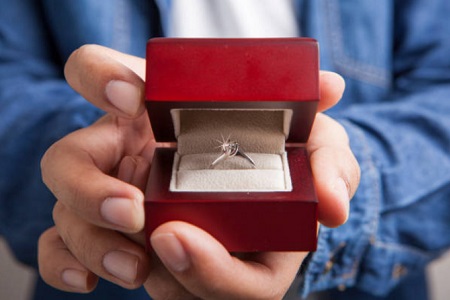
Diamonds are big-ticket purchases that are often used to celebrate significant life events. But the thing is, most consumers don’t actually know that much about diamonds when they are shopping for an engagement ring or an anniversary gift.
This leaves them vulnerable to scams and often, they get ripped off by unethical jewelers. In this write up, I’m going to reveal 5 of the most common tricks that cheating jewelers use to take advantage of unsuspecting consumers.
And if you don’t want to get fooled or become a fraud victim, you’ve come to the right place. Let’s jump right in…
#1 – Uncertified Diamond Scams
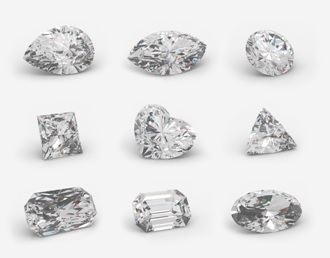
How do you make sure your diamond purchase is authentic?
As an industry insider, let me tell you the only reason why sellers don’t want to get their diamonds graded by reliable 3rd party gemological institutes like GIA (Gemological Institute of America) or AGS (American Gem Society) is that they are pushing extremely low quality diamonds and want to profit off your ignorance.
In most cases, these diamonds are actually unsellable once they are officially graded because of their low clarity/color/cut ratings.
Think about it, would you buy a diamond that is graded by GIA with a L color, I3 clarity and poor cut rating? Or would you be more likely to buy the same diamond if the jeweler told you it is an H color, VS2 clarity and excellent cut diamond even though they have no proper proof to back up the claims?
If someone is offering to sell you an uncertified diamond at a “great price”, the best thing to do is to walk away and not get taken in no matter how appealing the prices look like.
And get this, as someone with years of experience in the trade and a background in gemology, I would NEVER buy a diamond without a grading report. That should speak volumes about the importance of a reliable grading report when you go shopping.
#2 – Sham Certificates: “You Are Buying the Diamond, Not the Paper”
If someone gave me a dollar each time I heard the statement: “You are buying the diamond, not the paper”, I would have become a millionaire. This is a common marketing scam that salespeople use to dupe you into overpaying for an inferior product.
Unethical jewelers will sugarcoat their words by promoting diamonds with lab reports from unknown sources and claim that these reports/appraisals are just as good as those from GIA or AGS.
The reason they do this is to take advantage of human greed and market low quality stones in a way where you appear to be getting a huge discount no one else can offer. Without a reliable grading report, you are basically taking the seller’s word for the diamond’s specifications and price. Needless to say, you can expect the diamond’s qualities to be grossly misrepresented.
Diamonds are valued based on the 4Cs and subtle differences which may not be visible to the novice can actually translate to thousands of dollars in price differences.
This is why reliable documentation is so important when buying a diamond. The rule here is more than simple: never buy a diamond which doesn’t have a trusted certificate from GIA or AGS.
# 3 – Wholesale And Retail Pricing Scams
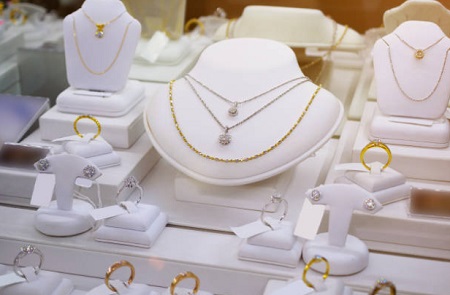
Sometimes it really amazes me to see how some jewelers can sell a $20,000 engagement ring for ‘only’ $2,499. Also, when I see permanent signages of “Sale 50-75% Off Everything!”, it makes me question what’s really going on in the store.
Now, if it sounds too good to be true, it probably is.
Here’s the fact, most stores put a retail price of their diamonds with a 200-300% mark up and really, they can put any astronomical price they want on the price tag. They will then come up with a marketing pitch or run gimmicky sales to slash prices to make it look like a great deal.
By artificially inflating the prices and dramatically cutting it, some unwary customers get a false impression that they need to take advantage of the deal. But even if the retailer offers you 70% off, you will still end up paying significantly more than you should.
Personally, I absolutely hate these type of sales tactics as it really puts you in a position of disadvantage. As a consumer, you can ignore whatever figures a physical store put in the appraisal document and you should take retail pricing with a pinch of salt.
What you want to do is to find out exactly what the product’s quality is and perform your price research at online stores like James Allen or Blue Nile. I’ve written a comprehensive article on how to do price comparisons the right way here.
#4 – Bait And Switch Trick
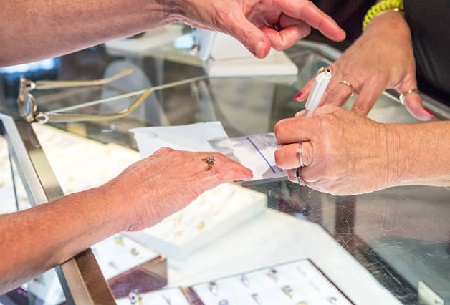
This is one of the oldest tricks in the book and it happened to me when I was performing a mystery shopping for an engagement ring. FYI, I vet every single vendor that is recommended here on Beyond4Cs.com. A vendor’s product and service have to meet my standards before I recommend them to readers.
So, here’s the story. I’ve placed an order for a diamond and selected a setting to go with it. After payment was made, I was informed that that diamond I chose was no longer available and the vendor offered another “similar” diamond that was much more expensive.
Needless to say, I wasn’t happy with how things turned out and managed to get my money back because of their refund policy (the vendor subsequently ended up on my blacklist). The thing is, most retail jewelers don’t offer such sales policies. Once you commit money without exercising due diligence, your money is locked up with them whether you like it or not. Similarly, when your rights are violated, it’s important to have a reliable advocate who can help you reclaim what is rightfully yours. With police misconduct attorneys in CA, you can confidently pursue your claim while focusing on healing and rebuilding your life.
So, when a bait and switch occurs, there is no option to get your money back and the sum you paid gets turned into store credit which then forces you to make a purchase with the jeweler.
#5 – “Diamonds Are a Great Investment”
This is a common trick used by jewelers and salespeople to make you feel good about making a purchase. After all, you want things you buy to appreciate in value right?
Jewelers who feed you rubbish claims like this are akin to cars salespeople who claim that your car is going to be worth more after you drive it for 10 years.
Get this, diamonds that are sold at a retail level are ALWAYS a bad investment and you can expect to lose 50-60% of its value the moment you walk out of the store.
Yes, you’ve heard me said it and I’ve written an extensive article here. If you are looking for an investment, head to the stock market and buy stocks of diamond mining companies or jewelry retailers.
You are going to fare much better than buying a diamond as a form of financial investment. The point I want to bring across here is: buy diamonds for their beauty and the joy of wearing them.
Wrapping Things Up – Where Should You Shop?
Superbly crafted 6 prong diamond engagement ring from White Flash.
Remember, you really get what you pay for when it comes to diamonds. If someone claims to be selling a superb gemstone of the best quality for a few bucks, you have to view the deal with skepticism.
Don’t get suckered into special promotions which involve huge discounts because they are gimmicks. Unlike the fashion industry where sales are held at the end of the season to clear old stock, the diamond industry doesn’t work in this manner.
On this note, it’s also not worth spending your time with businesses that sell very cheap or low-grade diamonds (think of stones with I2-I3 clarity ratings or industry grade stuff). Personally, I had been there, done that and got scammed by sellers on eBay. That happened when I was new to the industry and was trying to build up a small collection of diamonds for my private self-study. In my experience, nothing fruitful has ever come out of deals like these.
Over the years, I’ve bought numerous diamonds rings. The best experiences I had were always with vendors that offer intuitive shopping experiences and ideally cut diamonds at competitive pricing.
Here are a couple of videos of the rings where you can see me perform a full fledged review on the performance of the diamonds and quality of the craftsmanship.
Related Articles
Leave A Comment

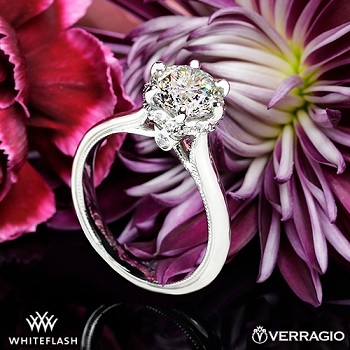
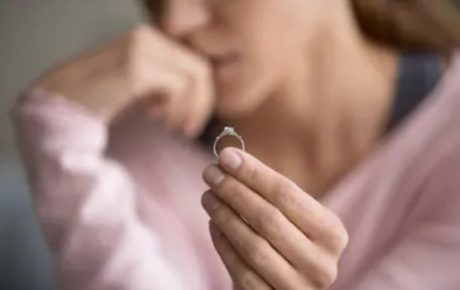
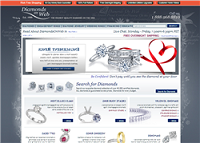
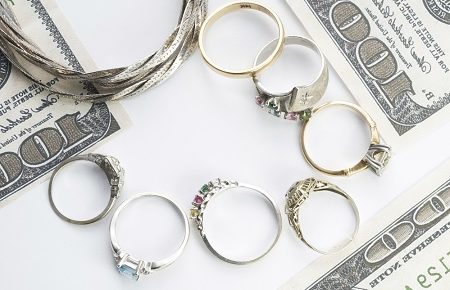







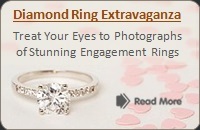
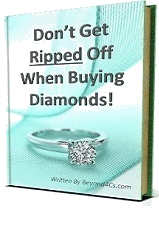

8 Comments
Hello!
This is wonderful information you have assembled and graciously offer to the world at large with apparently no financial benefit to yourself. Thank you for all the hard work you’ve put into this project!
I just wanted to bring your attention to a little spelling error so you could correct it and leave your project in great shape! When you are referring to gems or materials that are meant to imitate or look like real diamonds those are called simulants, not stimulates; which are a class of medications that effect the brain and
CNS.
A minor slip of the finger but I thought you’d want it fixed.
Cheers!
Melanie
Thank you! I was unaware of the correct spelling when the article was written. I appreciate you leaving a comment to help me out. Updated the errors!
Early this month I bought a 14 karat white gold mans diamond ring from KALLATI. It’s 1.00 ctw white diamonds It has 4 rows of 8 diamonds. The ring is being made. The color/clarity is GH-SI I1 for $4500.00. I purchased it from a store on the Carnival Cruise Ship LIberity. The sales lady said the appraised value would be about $10,000. Have I been ripped off?
It’s a really pricey piece considering how small the diamond melees are. The appraised value is just to make you feel good about an extremely bad purchase. Try selling the diamond ring for $5,000 back to them (or to any other jewelers) since they say it’s valued at $10,000. I can assure you that you will be extremely lucky to find someone who’s even going to pay you $2,000 for the ring.
As a reference, this article may interest you: https://beyond4cs.com/jewelry-guide/engagement-rings-under-10000/
What do you think about clarity enhanced diamonds? I’ve visited NYC recently and came across a seller that offered such a ring at a huge discount to the normal diamonds. I’ve also read that diamond frauds occur regularly with treated diamonds and I’m not sure how to proceed from here. I’m not a rich person. This purchase means alot to me and I cannot afford to get swindled.
They are a can of worms and you had better stay away from them. Sellers who deal with such goods tend to overstate the benefits of enhanced diamonds (it’s fraud!) but in reality, you are going to overpay for garbage quality stones.
In a recent undercover story, it was found that clarity enhanced (CE) diamonds were sold without proper disclosure to consumers in New York’s Diamond District. The only good thing I can say about your encounter is that the jeweler actually disclosed the treatment to you.
But it doesn’t change the fact that clarity enhanced diamonds are absolutely horrible because of misrepresentation, terrible quality and problems down the line with the stone.
As a consumer shopping online or in a jewelry store, your only form of safeguard is a 3rd party’s grading report on the diamond you are about to purchase. Buy only GIA or AGS graded diamonds as the rest of the gemological labs or an in-house appraisal reports are usually inflated.
There’s another reason why I only recommend GIA and AGS. Both labs do not grade fracture filled diamonds and if a permanent type of clarity treatment had been used, the lab report would clearly indicate them on the report.
Doing your own research prior to hitting the shops is extremely critical when shopping for an engagement ring. The more you learn, the harder jewelers find it to trick you with sugar coated words. Like all other things, applying a little common sense can go a long way. Remember, in the jewelry trade, you get what you pay for or you get less.
I just got ditched while trying to help someone deliver diamonds from nigeria. they were sending me photos and a certificate of ownership and everything while taking money from me to finish the process. and then suddenly while she was on her way to lebanon, she landed in ethiopia where she asked me for more money because of aviation rules and stuff. she already took 1400$ for the dhl transfer of the diamonds. I afraid I just got scammed from a fraudster. Can you help me get my money back?
You should have known better than to wire money to random strangers online. There are many versions of such scams via emails where these crooks pitch themselves as royalty or someone with a huge inheritance that can only be unlocked if you help them pay some of the fees involved in the process.
Go to the police or call your bank/credit card agency. It’s likely a diamond fraud operation and I don’t think you will get your money back though, so don’t get your hopes high.